|
|
|
|
|
|
|
|
|
The Arctic Update will not be published for the remainder of this week. We are completeing computer and systems upgrades in order to comply with the Department of Homeland Security's Binding Operational Directive 18-01. The next Arctic Update will be published on Monday, October 30, 2017.
No Arctic science events are scheduled for today.
|
Media
Trump Admin is Launching a Weather and Climate Satellite. One of the first new satellites launched in the Trump era will provide invaluable insight into climate change, though it is being touted primarily for its ability to predict weather. The Joint Polar Satellite System-1 will serve multiple functions, even as it has been described by the Trump administration as an important tool to help prepare for future storms. The satellite will also provide data essential to understanding how climate change is transforming the planet. That includes its monitoring of Arctic sea ice, one of the most dramatic indicators of a warming planet, as well as the ozone hole over Antarctica. The Trump administration has been quieter about those functions. E&E News
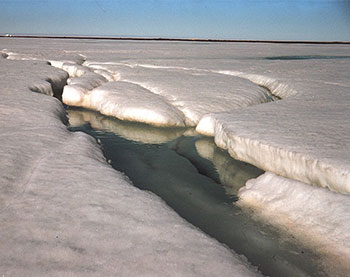 Arctic Sea Ice May be Thinning Faster Than Scientists Initially Predicted. Arctic Sea Ice May be Thinning Faster Than Scientists Initially Predicted. Long-held scientific estimates of Arctic sea ice thickness and the rate at which it's declining have been off significantly, according to a newly published study led by the University of Calgary's Cryosphere Climate Research Group. Indeed, scientific predictions that foresaw the first ice-free Arctic Ocean in the summertime occurring between 2040 and 2050 may come to pass even sooner, according to Vishnu Nandan, Geography Eyes High doctoral candidate and lead author of the study, published in the academic journal Geophysical Research Letters. University of Calgary
Under the Sea Ice, Behold the Arctic Jellyfish. The doings of creatures under the Arctic sea ice are many, but they are rarely observed by humans; it's pretty hard to get under the ice to look. In recent years, marine biologist Andy Juhl and his colleagues have gotten around this problem by driving snowmobiles several miles from Point Barrow, Alaska, out onto the adjoining frozen Chukchi Sea, drilling holes in the four-foot-plus thick ice, and poking in a video camera attached to an small underwater vehicle. Among the things that they have observed: sizable Chrysaora melanaster jellyfish floating by, trailing their foot-long-plus tentacles along the shallow bottom. Phys.org 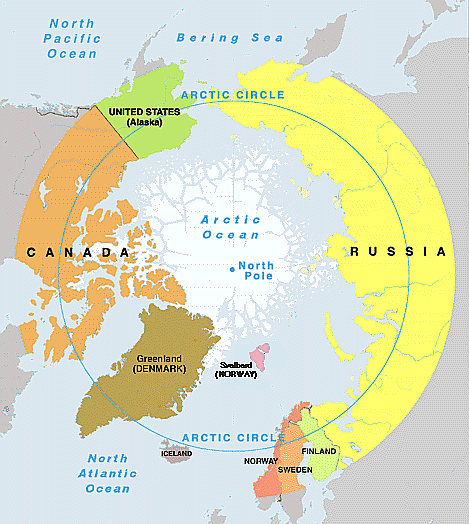 Map Provides High-Resolution Look at Nearly Entire Arctic Region. Map Provides High-Resolution Look at Nearly Entire Arctic Region. "The Arctic, before we started, was one of the most poorly mapped places on Earth. It's not anymore," said Paul Morin, co-principal investigator of the ArcticDEM initiative, which has now released high-resolution digital elevation models (DEM) of 97.4% of the region. With this latest release, "we have a uniform product at 2-meter [resolution]" for all the land area north of 60°N latitude, plus those parts of Alaska, Greenland, and Russia's Kamchatka Peninsula that are south of that point. EOS Siberian Scientists Work on Communication Technology for Arctic. Specialists of the Omsk State Technical University with support from the Russian Scientific Fund are working on a technology of transmitting text messages by a radio channel for distance communication in the Arctic, the project's head Pavel Puzyrtsev told TASS on Tuesday. TASS
|
|
Future Events
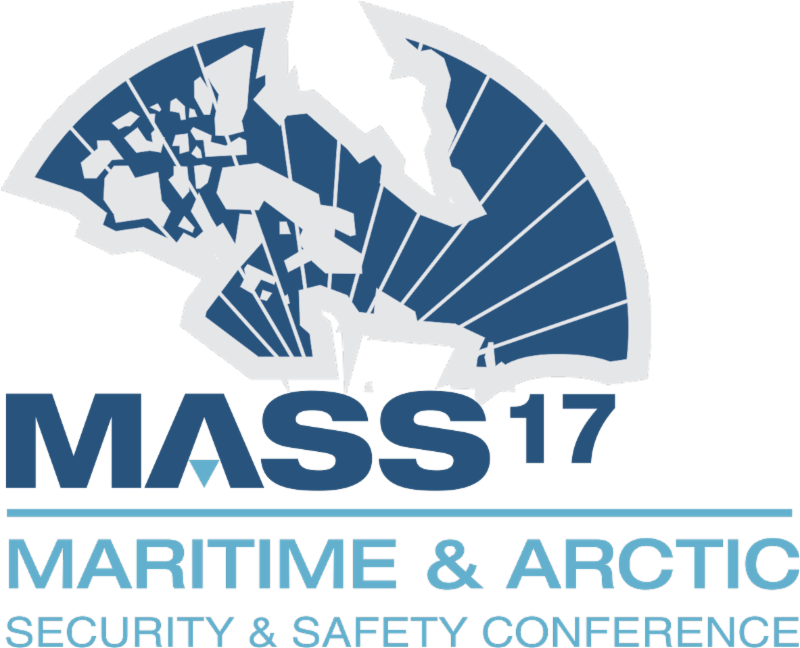 Maritime & Arctic Security & Safety Conference (MASS17) "Arctic Horizons," October 31- November 1, 2017 (Newfoundland & Labrador Canada). Now in its fifth year, MASS has gained an international reputation as a must-attend event to gain a wide perspective on challenges, opportunities and policies related to the Arctic and North Atlantic maritime environments. The aim of this Government of Canada and the Government of Newfoundland and Labrador supported international conference is to promote stakeholder collaboration, technological innovation, harsh environment research & development, and world-class education efforts that are contributing to both Maritime and Arctic issues. This two day conference will draw a diverse group of speakers and attendees representing government, military, Canadian and U.S. Coast Guard, industry, academic leaders, Northern Leaders, research and other key stakeholders. We hope you can join us to be a part of this important dialogue Maritime & Arctic Security & Safety Conference (MASS17) "Arctic Horizons," October 31- November 1, 2017 (Newfoundland & Labrador Canada). Now in its fifth year, MASS has gained an international reputation as a must-attend event to gain a wide perspective on challenges, opportunities and policies related to the Arctic and North Atlantic maritime environments. The aim of this Government of Canada and the Government of Newfoundland and Labrador supported international conference is to promote stakeholder collaboration, technological innovation, harsh environment research & development, and world-class education efforts that are contributing to both Maritime and Arctic issues. This two day conference will draw a diverse group of speakers and attendees representing government, military, Canadian and U.S. Coast Guard, industry, academic leaders, Northern Leaders, research and other key stakeholders. We hope you can join us to be a part of this important dialogue
Updates from the US Representatives to the International Arctic Science Committee (IASC), November 1, 2017 (Webinar). This event is part of The Interagency Arctic Research Policy Committee (IARPC) Collaborations Webinar Series. The International Arctic Science Committee (IASC) is a non-governmental, international scientific organization whose mission is to facilitate international cooperation in all aspects of Arctic research. Each IASC member country appoints up to two national delegates for each of the five Working Groups, which are the Atmosphere, Cryosphere, Marine, Social and Human, and Terrestrial Working Groups. IARPC invites the Arctic research community to join this webinar to learn about IASC's recent activities and how to engage with their representatives through the forum provided on IARPC Collaborations.
 Polar Law Symposium 2017 and Rovaniemi Arctic Spirit, November 13-16, 2017 (Rovaniemi, Finland). The purpose of the Polar Law Symposium is to examine, in detail, the implications of the challenges faced by the Polar Regions for international law and policy and to make recommendations on appropriate actions by states, policy makers and other international actors to respond to these emerging and re-emerging challenges. The Rovaniemi Arctic Spirit Conference is integrated with the Polar Law Symposium, which will be organized by the Northern Institute for Environmental and Minority Law at the Arctic Center of the University of Lapland. Polar Law Symposium 2017 and Rovaniemi Arctic Spirit, November 13-16, 2017 (Rovaniemi, Finland). The purpose of the Polar Law Symposium is to examine, in detail, the implications of the challenges faced by the Polar Regions for international law and policy and to make recommendations on appropriate actions by states, policy makers and other international actors to respond to these emerging and re-emerging challenges. The Rovaniemi Arctic Spirit Conference is integrated with the Polar Law Symposium, which will be organized by the Northern Institute for Environmental and Minority Law at the Arctic Center of the University of Lapland.
Arctic Research Seminar with Courtney Carothers and Laura Zanotti: In a Climate of Change: Co-producing Knowledge and Community Researcher Relationships in the Leadership and Strength Project in Utqiagvik, Alaska, November 30, 2017 (Washington, DC USA). Courtney Carothers is an associate professor of fisheries in the College of Fisheries and Ocean Sciences at the University of Alaska Fairbanks. She is an environmental anthropologist currently researching how fishery systems are being remade by enclosure and privatization processes and the total environment of change facing Arctic Indigenous communities. Her work explores human-environment relationships, cultural values, equity, and well-being. She has co-edited two books and published over 30 articles and book chapters on these topics. She currently serves on a number of boards and working groups, including: the SEARCH (Study of Environmental Arctic Change) Science Steering Committee, the North Pacific Research Board Science Panel, the Alaska Sustainable Salmon Fund Expert Panel, the State of Alaska's Salmon and People. This event is part of the ARCUS DC Arctic Research Seminar Series.
AGU Fall Meeting, December 11-15, 2017 (New Orleans, LA USA). Fall 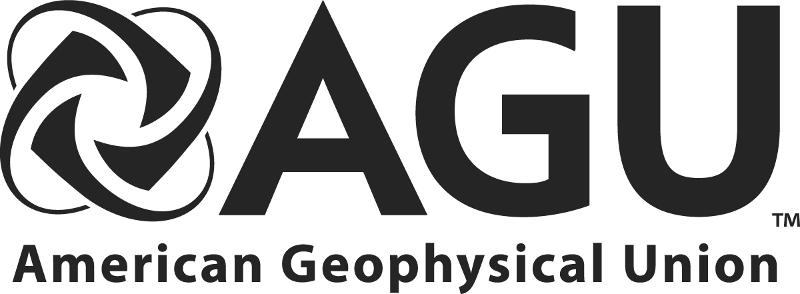 Meeting is the largest and preeminent Earth and space science meeting in the world. The 2017 Fall Meeting will take place in New Orleans, Louisiana, offering attendees the chance to discover a new location that features world renowned cuisine, music, arts and culture, and provides access to vital scientific ecosystems. Fall Meeting will offer a unique mix of more than 20,000 oral and poster presentations, a broad range of keynote lectures, various types of formal and informal networking and career advancement opportunities, scientific field trips around New Orleans, and an exhibit hall packed with hundreds of exhibitors.
ArcticNet invites the global Arctic research community to Arctic Change 2017! This conference will bring together Arctic researchers and students with Inuit, Northerners and government, industry and NGO stakeholders. The world's foremost Arctic scientists will present research findings and discuss impacts of climate change and modernization. With 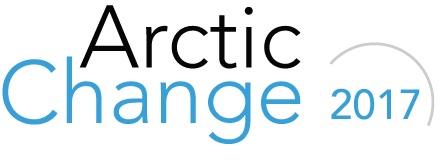 over 1500 participants expected, Arctic Change 2017 will be one of the largest trans-sectoral international Arctic research conferences held in Canada. We welcome students and early career researchers to participate in "Student Day" at the start of the Conference. See an excerpt from last year: ArcticNet ASM2016. over 1500 participants expected, Arctic Change 2017 will be one of the largest trans-sectoral international Arctic research conferences held in Canada. We welcome students and early career researchers to participate in "Student Day" at the start of the Conference. See an excerpt from last year: ArcticNet ASM2016.
ISAR-5 Fifth International Symposium on Arctic Research, January 15-18, 2018 (Tokyo, Japan).The fifth ISAR has been planned at the recommendation of the science steering committee of ISAR-4, which was held in Toyama, Japan in April 2015. The fifth ISAR will be devoted to discussions on environmental changes in the Arctic and their regional and global implications, to seek additional international scientific collaboration in this area by gathering, synthesizing and sharing information related to these changes occurring in the Arctic. Special emphasis will be placed on the fields of the social sciences and humanities, which were not included in the previous ISARs. ISAR-5 will consist of general sessions and special sessions. The general sessions will address the following topics: atmosphere; ocean and sea ice; rivers, lakes, permafrost, and snow cover; ice sheets, glaciers, and ice cores; terrestrial ecosystems; marine ecosystems; geospace; policies and economy; and social and cultural dimensions. Special sessions will be solicited on cross-cutting themes.
2018 Arctic Frontiers: Connecting the Arctic, January 21-26, 2018 (Tromso, Norway). Arctic Frontiers is an international arena on sustainable development in the Arctic. The conference addresses the management of opportunities and challenges to achieve viable economic growth with societal and environmental sustainability. Arctic Frontiers brings academia, government and business together to create a firmer foundation for decision-making and sustainable economic development in the Arctic. Join the Arctic Frontiers conference preparing the new Arctic future. The conference takes place the fourth week of January in the Norwegian city of Tromsø, known as the Gateway to the Arctic.
Alaska Marine Science Symposium, January 22-26, 2018 (Anchorage, Alaska.)
The Alaska Marine Science Symposium (AMSS) is Alaska's premier marine research conference. For over 20 years, it has brought together scientists, educators, resource managers, students, and the public to discuss marine research conducted in Alaskan waters. Over 700 people attend this 4-day long conference held annually in January. Each day of the conference highlights Alaskan marine ecosystems: Arctic (Tuesday), Bering Sea & Aleutian Islands (Wednesday), and the Gulf of Alaska (Thursday). Research topics discussed range from ocean physics, fishes and invertebrates, seabirds, marine mammals, to local traditional knowledge. Website for 2018 meeting is here.
Alaska Forum on the Environment, February 12-16, 2018 (Anchorage, Alaska)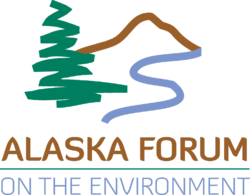 . AFE is a statewide gathering of environmental professionals from government agencies, non-profit and for-profit businesses, community leaders, Alaskan youth, conservationists, biologists and community elders. The diversity of attendees sets this conference apart from any other. The 2018 event will be our 20th year providing a strong educational foundation for all Alaskans and a unique opportunity to interact with others on environmental issues and challenges. . AFE is a statewide gathering of environmental professionals from government agencies, non-profit and for-profit businesses, community leaders, Alaskan youth, conservationists, biologists and community elders. The diversity of attendees sets this conference apart from any other. The 2018 event will be our 20th year providing a strong educational foundation for all Alaskans and a unique opportunity to interact with others on environmental issues and challenges.
The Effects of Climate Change on the World's Oceans, June 4-8, 2018 (Washington, DC USA).
The 4th International Symposium will bring together experts from around the world to better understand climate impacts on ocean ecosystems - and how to respond. The event is hosted by a variety of groups including International Council for the Exploration of the Sea (ICES), North Pacific Marine Science Organization (PICES), Intergovernmental Oceanographic Commission of UNESCO (IOC), and Food and Agriculture Organization of the United Nations (FAO).
 POLAR 2018, June 15-27, 2018 (Davos, Switzerland).POLAR2018 is a joint event from the Scientific Committee on Antarctic Research (SCAR) and the International Arctic Science Committee (IASC). The SCAR meetings, the ASSW and the Open Science Conference will be hosted by the Swiss Federal Institute for Forest, Snow and Landscape Research WSL under the patronage of the Swiss Committee on Polar and High Altitude Research. The WSL Institute for Snow and Avalanche Research SLF is organizing POLAR2018. POLAR 2018, June 15-27, 2018 (Davos, Switzerland).POLAR2018 is a joint event from the Scientific Committee on Antarctic Research (SCAR) and the International Arctic Science Committee (IASC). The SCAR meetings, the ASSW and the Open Science Conference will be hosted by the Swiss Federal Institute for Forest, Snow and Landscape Research WSL under the patronage of the Swiss Committee on Polar and High Altitude Research. The WSL Institute for Snow and Avalanche Research SLF is organizing POLAR2018.
17th International Congress of Circumpolar Health (ICCH17), August 12-15, 2018 (Copenhagen, Denmark). The ICCH congresses are held every third year in different locations in the circumpolar area and represent the largest scientific meetings worldwide on circumpolar health. The ICCH congresses serve as the primary source of information exchange and scholarly communication in issues relating to circumpolar health. More than 750 participants generally register and participate in each Congress, and more than 400 scientific papers or posters are usually presented.
Arctic Biodiversity Congress, October 9-11, 2018 (Rovaniemi, Finland). The second Arctic Biodiversity Congress is hosted by the Conservation of Arctic Flora and Fauna (CAFF), the biodiversity working group of the Arctic Council, and the Ministry of the Environment, Finland. The second Arctic Biodiversity Congress will build on the success of the first Congress, held in 2014 in Trondheim, Norway, and will bring together scientists, policymakers government officials, Indigenous representatives, Traditional Knowledge holders, industry, non-governmental organizations, and others to promote the conservation and sustainable use of Arctic biodiversity.
|
|

  
4350 N. Fairfax Drive, Suite 510
Arlington, VA 22203, USA
External links in this publication, and on the USARC's World Wide Web site ( www.arctic.gov) do not constitute endorsement by the US Arctic Research Commission of external Web sites or the information, products or services contained therein. For other than authorized activities, the USARC does not exercise any editorial control over the information you may find at these locations. These links are provided consistent with the stated purpose of this newsletter and the USARC Web site.
|
|
|
|
|
|
|
|
|
 Arctic Sea Ice May be Thinning Faster Than Scientists Initially Predicted. Long-held scientific estimates of Arctic sea ice thickness and the rate at which it's declining have been off significantly, according to a newly published study led by the University of Calgary's Cryosphere Climate Research Group. Indeed, scientific predictions that foresaw the first ice-free Arctic Ocean in the summertime occurring between 2040 and 2050 may come to pass even sooner, according to Vishnu Nandan, Geography Eyes High doctoral candidate and lead author of the study, published in the academic journal Geophysical Research Letters. University of Calgary
Arctic Sea Ice May be Thinning Faster Than Scientists Initially Predicted. Long-held scientific estimates of Arctic sea ice thickness and the rate at which it's declining have been off significantly, according to a newly published study led by the University of Calgary's Cryosphere Climate Research Group. Indeed, scientific predictions that foresaw the first ice-free Arctic Ocean in the summertime occurring between 2040 and 2050 may come to pass even sooner, according to Vishnu Nandan, Geography Eyes High doctoral candidate and lead author of the study, published in the academic journal Geophysical Research Letters. University of Calgary Map Provides High-Resolution Look at Nearly Entire Arctic Region. "The Arctic, before we started, was one of the most poorly mapped places on Earth. It's not anymore," said Paul Morin, co-principal investigator of the ArcticDEM initiative, which has now released high-resolution digital elevation models (DEM) of 97.4% of the region. With this latest release, "we have a uniform product at 2-meter [resolution]" for all the land area north of 60°N latitude, plus those parts of Alaska, Greenland, and Russia's Kamchatka Peninsula that are south of that point. EOS
Map Provides High-Resolution Look at Nearly Entire Arctic Region. "The Arctic, before we started, was one of the most poorly mapped places on Earth. It's not anymore," said Paul Morin, co-principal investigator of the ArcticDEM initiative, which has now released high-resolution digital elevation models (DEM) of 97.4% of the region. With this latest release, "we have a uniform product at 2-meter [resolution]" for all the land area north of 60°N latitude, plus those parts of Alaska, Greenland, and Russia's Kamchatka Peninsula that are south of that point. EOS


 Meeting is the largest and preeminent Earth and space science meeting in the world. The 2017 Fall Meeting will take place in New Orleans, Louisiana, offering attendees the chance to discover a new location that features world renowned cuisine, music, arts and culture, and provides access to vital scientific ecosystems. Fall Meeting will offer a unique mix of more than 20,000 oral and poster presentations, a broad range of keynote lectures, various types of formal and informal networking and career advancement opportunities, scientific field trips around New Orleans, and an exhibit hall packed with hundreds of exhibitors.
Meeting is the largest and preeminent Earth and space science meeting in the world. The 2017 Fall Meeting will take place in New Orleans, Louisiana, offering attendees the chance to discover a new location that features world renowned cuisine, music, arts and culture, and provides access to vital scientific ecosystems. Fall Meeting will offer a unique mix of more than 20,000 oral and poster presentations, a broad range of keynote lectures, various types of formal and informal networking and career advancement opportunities, scientific field trips around New Orleans, and an exhibit hall packed with hundreds of exhibitors. over 1500 participants expected, Arctic Change 2017 will be one of the largest trans-sectoral international Arctic research conferences held in Canada. We welcome students and early career researchers to participate in "Student Day" at the start of the Conference. See an excerpt from last year:
over 1500 participants expected, Arctic Change 2017 will be one of the largest trans-sectoral international Arctic research conferences held in Canada. We welcome students and early career researchers to participate in "Student Day" at the start of the Conference. See an excerpt from last year: 



